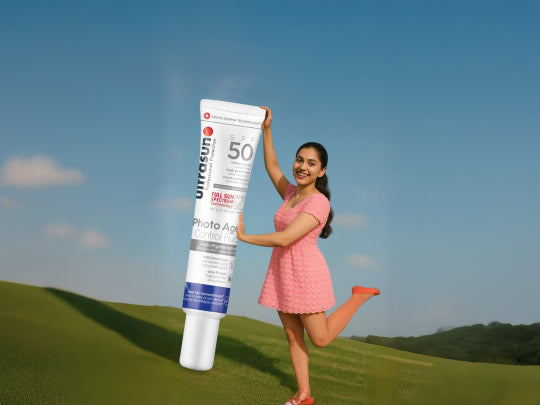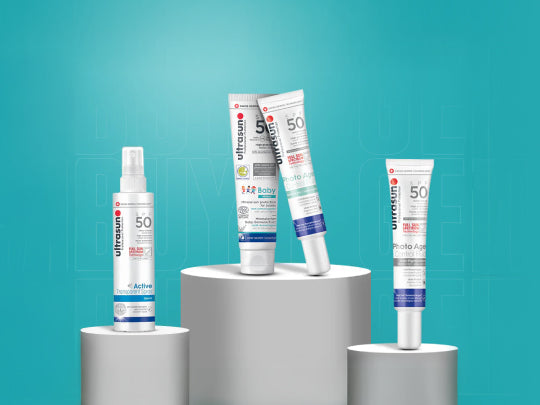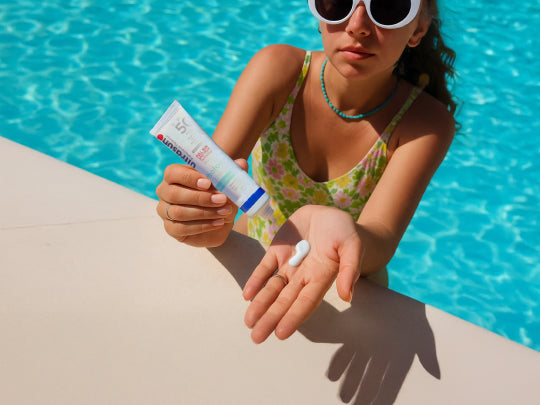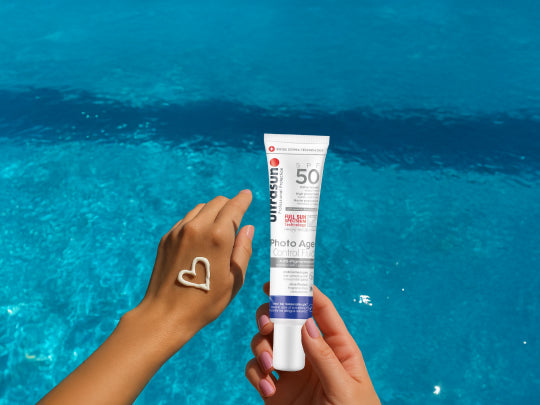Winter might seem like the perfect time to skip sunscreen, but that’s one of the biggest skincare mistakes you can make. Many people assume UV rays are weaker during colder months, but sun damage can be just as harmful in winter as it is in summer. Dry, flaky skin, dark spots, and premature aging are common problems caused by unprotected sun exposure during winter.
What’s worse? Snow and icy surfaces reflect up to 80% of UV rays, doubling the impact on your skin during outdoor activities. While your face might be the first thing you think to protect, your body is equally vulnerable—especially your hands, neck, and other exposed areas.
Many people struggle to find a non-greasy, hydrating sunscreen that offers broad-spectrum protection without causing dryness or irritation in cold weather. That’s where face & body sunscreen for winter comes in—a complete solution to keep your skin hydrated, protected from harmful UV rays, and free from dark spots all season long.
In this blog, we’ll explore why sunscreen is essential in winter, the key ingredients to look for, and the best products to keep your skin safe, soft, and glowing.
1. Why Is Sunscreen Essential in Winter?
Even though the sun might feel weaker during colder months, UV rays are present year-round and can cause significant damage to your skin if left unprotected. Here's why sunscreen is crucial during winter:
UV Rays Penetrate Through Clouds – Even on overcast days, UVA and UVB rays can damage your skin, causing dark spots, wrinkles, and photoaging.
Snow Reflects UV Rays – Snow and ice reflect up to 80% of UV rays, increasing your exposure and making sunscreen essential during outdoor activities like skiing or hiking.
Prevents Dry, Flaky Skin – Winter weather can make your skin dry and sensitive. Using a hydrating sunscreen helps lock in moisture and protect your skin barrier.
Reduces Dark Spots and Hyperpigmentation – Sun exposure can worsen existing dark spots and cause new pigmentation even in winter.
2. Key Ingredients to Look for in a Face & Body Sunscreen for Winter
When choosing the right face & body sunscreen for winter, it’s important to focus on products that offer both protection and hydration. Here are the key ingredients to look for:
Zinc Oxide & Titanium Dioxide (Mineral Sunscreens) – Provide broad-spectrum protection by physically blocking UVA and UVB rays.
Hyaluronic Acid – Helps retain moisture, keeping your skin hydrated and plump even in dry winter air.
Ceramides – Strengthen your skin barrier, preventing dryness and irritation.
Vitamin E & Antioxidants – Protect your skin from free radicals and help reduce sun damage.
SPF 50+ – Ensures maximum protection against harmful rays during outdoor activities.
3. How to Apply Face & Body Sunscreen in Winter for Maximum Protection
Applying sunscreen properly is essential to ensure your skin stays protected and hydrated. Follow these tips for maximum effectiveness:
Apply Generously – Use a quarter-sized amount for your face and a shot glass worth for your body to cover all exposed areas.
Don’t Forget Your Hands, Neck, and Ears – These areas are often neglected but are just as exposed to UV rays.
Apply 15-20 Minutes Before Going Outdoors – Allow the sunscreen to absorb into your skin before heading out.
Reapply Every 2-3 Hours – Especially if you’re spending extended time outdoors or engaging in winter sports.
4. Common Winter Skin Problems Sunscreen Can Prevent
Using face & body sunscreen during winter can help prevent several common skin problems caused by UV exposure and harsh weather:
Dry, Flaky Skin – Sunscreen with hydrating ingredients helps keep your skin soft and smooth.
Dark Spots and Hyperpigmentation – Prevents sun-induced dark spots from worsening.
Photoaging – Protects against fine lines, wrinkles, and premature aging caused by UV rays.
Chapped Skin – Acts as a protective barrier, preventing windburn and irritation in cold weather.
5. Best Face & Body Sunscreens for Winter Protection
Here is one of the best sunscreens that provide full-face and body protection during the winter months:
Ultrasun Face & Body SPF 50+
a. Broad-spectrum protection
b. Water-resistant and non-greasy
c. Ideal for sensitive skin
6. Tips for Choosing the Right Face & Body Sunscreen for Winter
Here’s how to pick the best sunscreen for your face and body during the colder months:
Choose Broad-Spectrum Protection – Ensures your skin is protected from both UVA and UVB rays.
Opt for Hydrating Formulas – Look for moisturizing sunscreens that won’t dry out your skin.
Go for Non-Comedogenic Products – Ensures the sunscreen won’t clog your pores or cause breakouts.
Pick SPF 50 or Higher – Provides maximum protection, especially during outdoor winter activities.
7. FAQs About Face & Body Sunscreen for Winter
Here are answers to some of the most frequently asked questions about using sunscreen in winter:
Do I really need sunscreen in winter?
Yes! UV rays are present year-round, and winter weather, snow, and clouds do not reduce their impact.
Can sunscreen prevent dry skin in winter?
Absolutely! Hydrating sunscreens with ingredients like hyaluronic acid and ceramides can help prevent dryness and keep your skin soft and smooth.
How often should I apply sunscreen in winter?
Apply every morning and reapply every 2-3 hours if you’re spending time outdoors or exposed to UV rays.
Conclusion
Don’t let winter weather fool you—UV rays are still harmful during the colder months. Using a hydrating face and body sunscreen can prevent sun damage, dryness, and premature aging, keeping your skin soft, healthy, and glowing all season long.
Choose the right sunscreen, follow a consistent skincare routine, and enjoy protected, radiant skin no matter the season!
This version ensures clarity, consistency, and a professional tone while retaining all key information. Let me know if you'd like further refinement!







